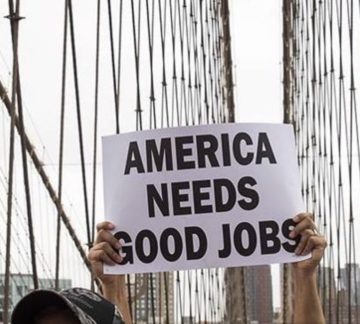Dani Rodrik in Project Syndicate:
 In advanced economies, earnings for those with less education often stagnated despite gains in overall labor productivity. Since 1979, for example, US production workers’ compensation has risen by less than a third of the rate of productivity growth. Labor-market insecurity and inequality rose, and many communities were left behind as factories closed and jobs migrated elsewhere.
In advanced economies, earnings for those with less education often stagnated despite gains in overall labor productivity. Since 1979, for example, US production workers’ compensation has risen by less than a third of the rate of productivity growth. Labor-market insecurity and inequality rose, and many communities were left behind as factories closed and jobs migrated elsewhere.
In developing countries, where standard economic theory predicted that workers would be the main beneficiary of the expanding global division of labor, corporations and capital again reaped the biggest gains. A forthcoming book by George Washington University’s Adam Dean shows that even where democratic governments prevailed, trade liberalization went hand in hand with repression of labor rights.
More here.
